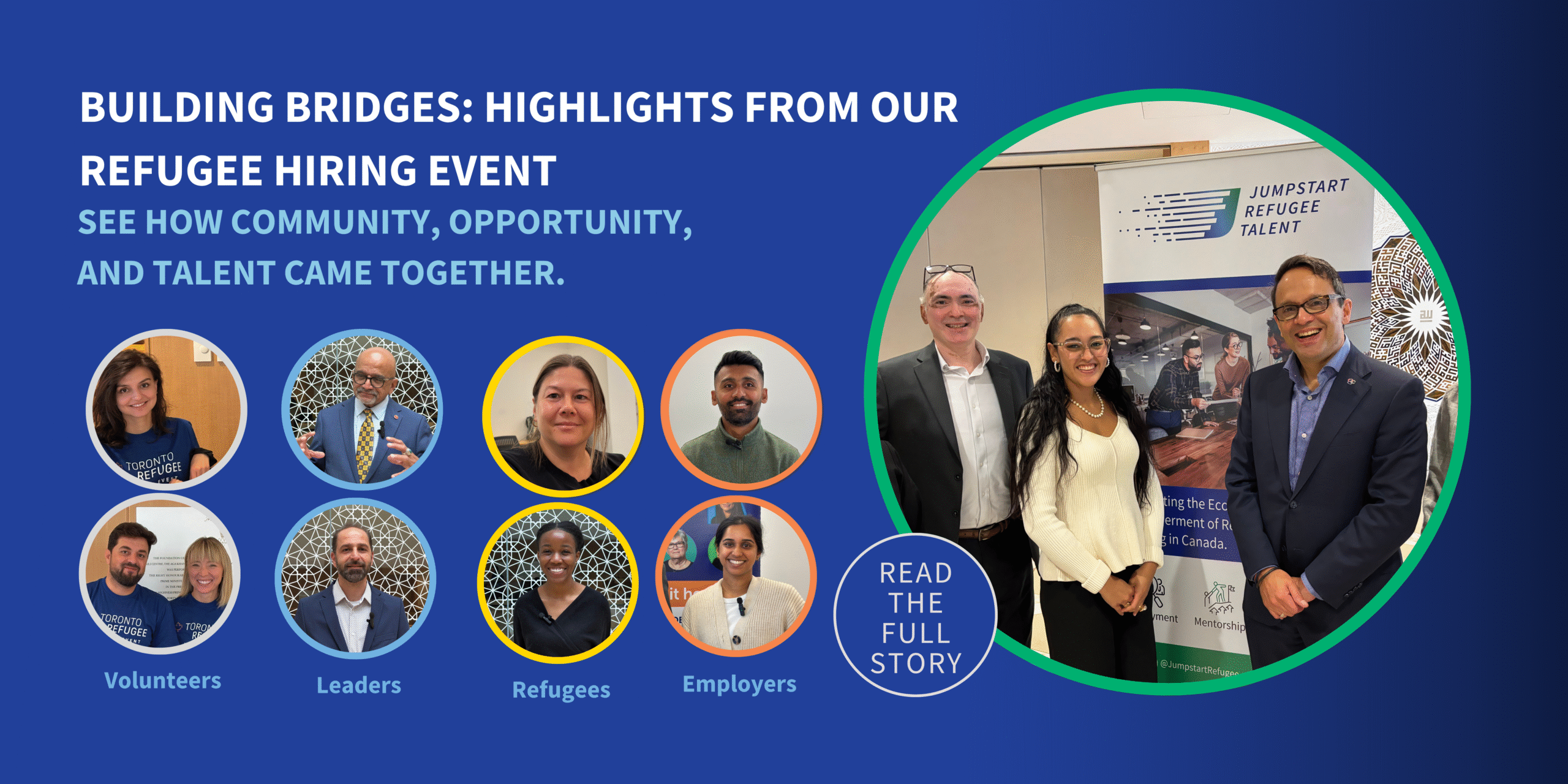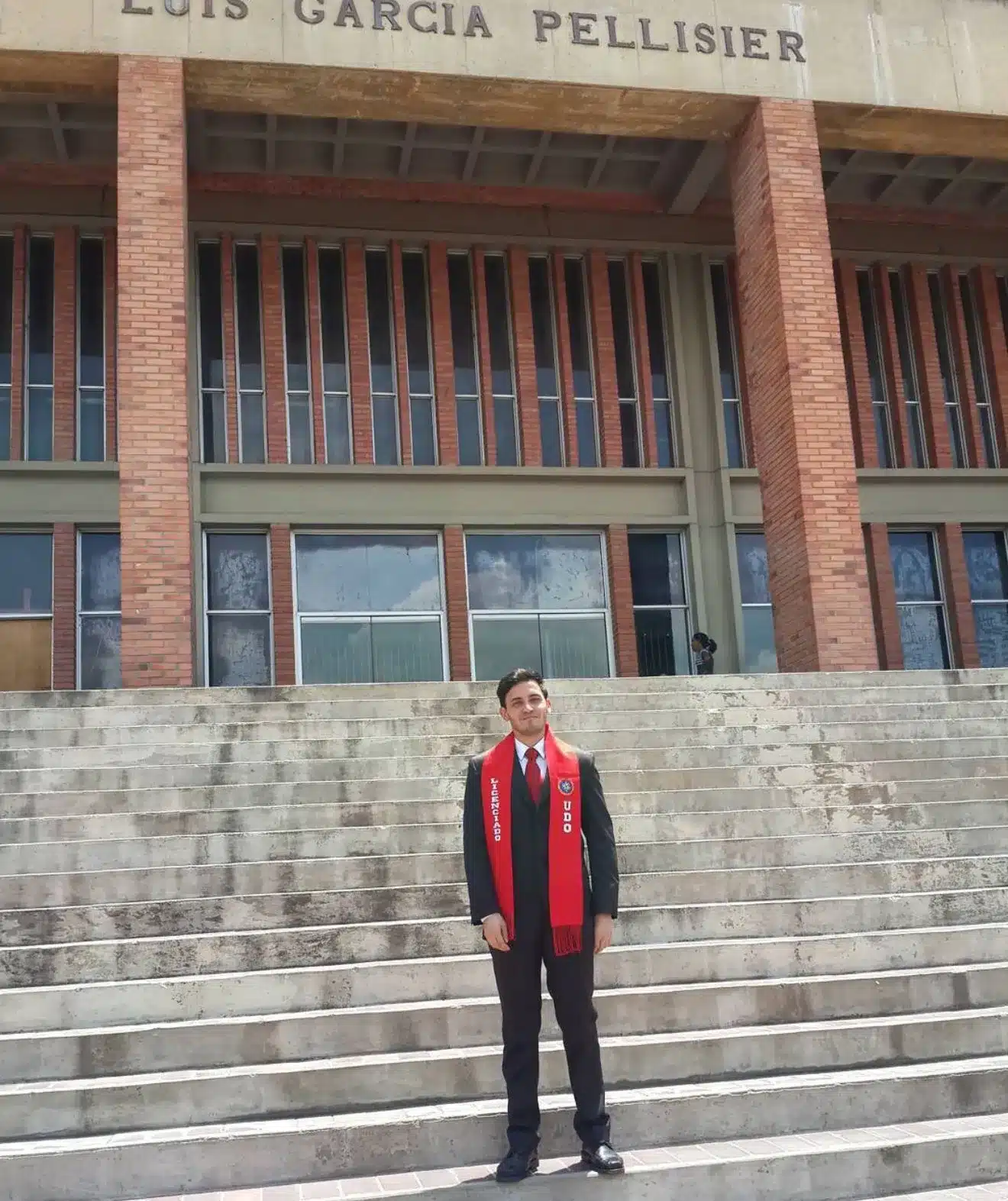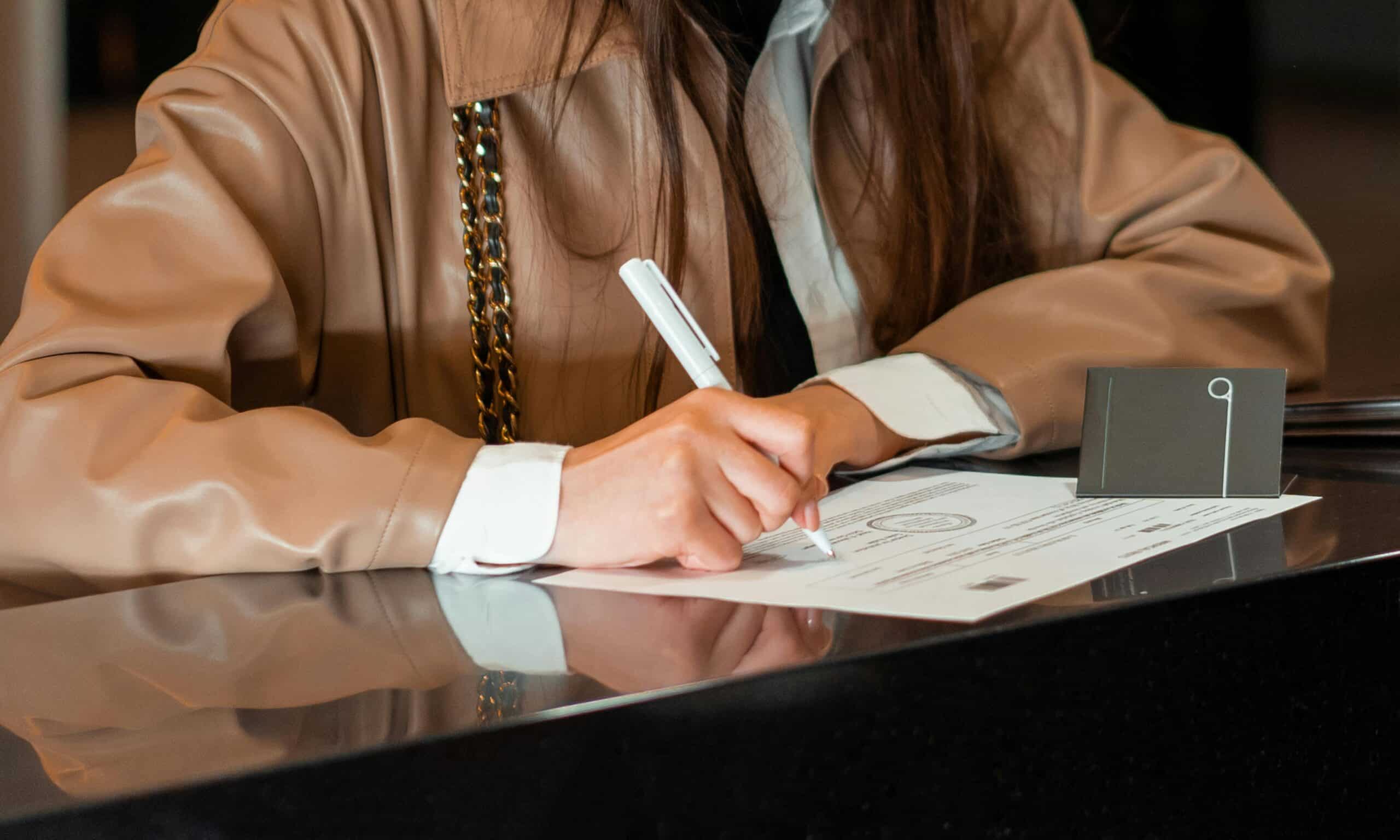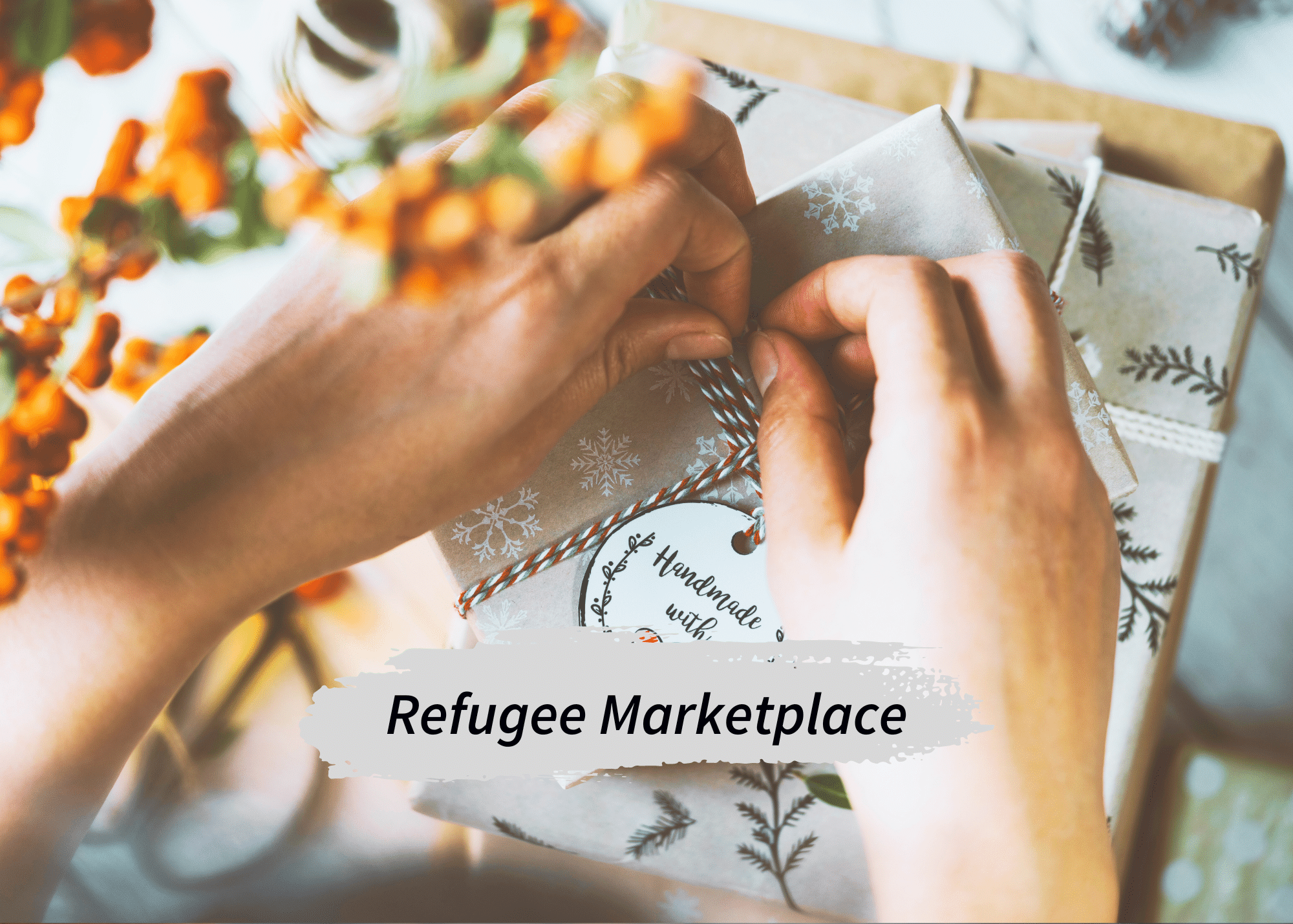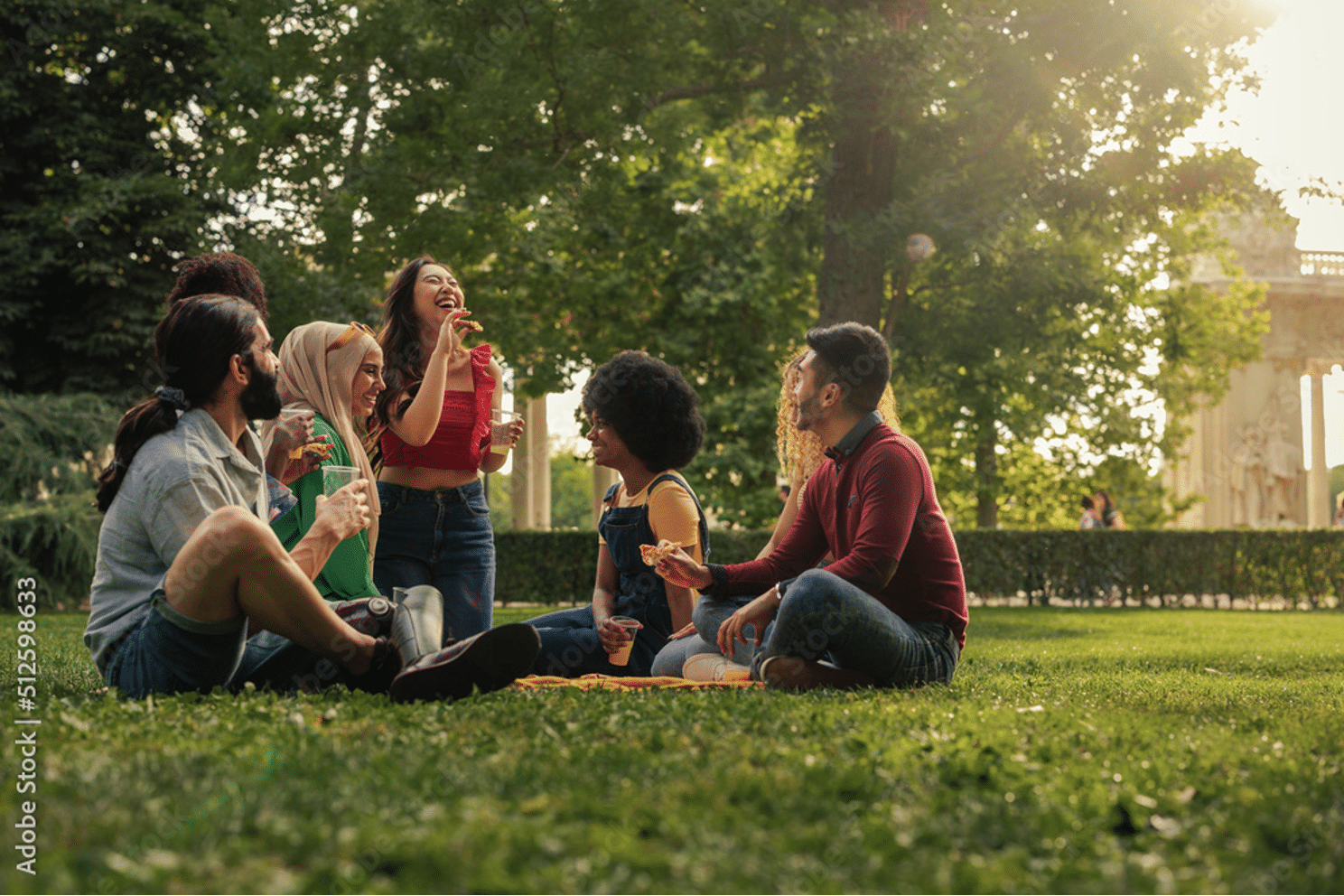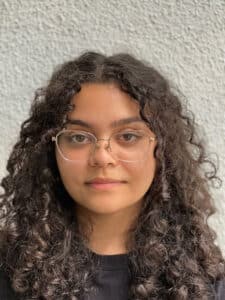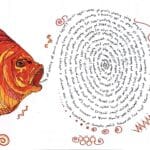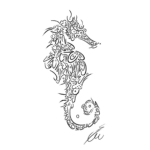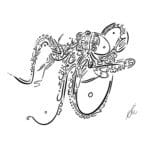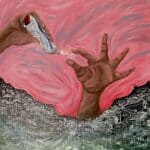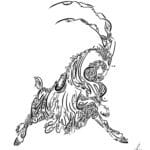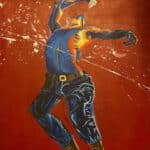Highlighting Canada’s Talented Refugee Artists
In celebration of the wide variety of refugee artists living across Canada, our Creator Series profiles the individuals, their work, and their inspiration in creating unique artistic products. From authors and painters, designers and singers, these profiles examine how their lived refugee experiences have informed their practice and how you can further support their work.
In honor of International Woman’s Day 204, we’re profiling Palestinian-Lebanese painter and Arabic Calligraphy artist, Almas Abou Chakra.
Abou Chakra came to Canada three years ago from Lebanon, a place she called home for 14 years. Her migration journey has encouraged her to maintain a connection to her culture through art, showing up in the form of art activism. The past and current injustices in the Middle East have spurred her to use creative platforms for good. Most notably, Almas has created and sold art to fundraise for education and medical treatment in Palestine.
Coming to Canada presented Almas with new challenges, especially when it came to her cultural identity. In a country that has a different language, cultural practices, and social status, she found it hard and unproductive to cling to her old life.
“Now, I realize that finding a balance between assimilation and maintaining cultural heritage is imperative to preserve my identity,” she says. “Being proud of who I am came as a byproduct of freely expressing myself through art. The me I previously presented to my job, school, and general community was not the me I unleashed behind closed doors. I maintained who I truly was and fostered the person I was turning into in this new land through art. For that, I am eternally grateful.”
When asked about her experience as a refugee artist, Almas did not hold back on sharing the difficult realities.
“Being a refugee is a double-edged sword in the art world. On the one hand, you’re inexperienced and lack connections in a new community. Without a good network and business savvy related to the location you’re centered in; you won’t know about opportunities to display your work or participate in art shows.”
At the same time, Almas noted the positives of such inexperience. She highlighted that “the unique experience of being a refugee sets apart my work from other artists who were born and raised here. Business savvy and networking are skills that can be learned. But groundbreaking life experiences are less easy to come by.” What inspires Almas to continue to create art is its potential for feeling and experiencing history from a personal lens, one that causes people to look past their experiences and empathize with opposite ones.
Despite these challenges, Almas is proud of who she is and encourages fellow refugees to be as well. Her advice to refugees is, “Don’t be afraid to make your presence known in spaces of power. It’s so easy to fall into the mentality of feeling less than simply because of our status as refugees. Our lack of experience in a new land and language proficiency may hinder our ability to communicate; however, I have come to see these cons as places of pride. We, as refugees, bring in a new perspective, a fresh take on projects and ideas that cannot be seen by others. Own your weaknesses and turn them into advantages.”
When asked about her biggest support system, Almas gladly shared her family. She notes that they are her biggest fans and supported her in setting up her business in Canada.
“I know for a fact that I could never have achieved the level that I am at today without their help.”
As a young artist, Almas is eager to prove herself and we cannot wait to cheer her on the sidelines!
As a young artist, Almas is eager to prove herself and we cannot wait to cheer her on the sidelines!
We encourage you all to follow Almas on her exciting journey. Check out her Instagram page for more information on how to support her work.
Stay tuned for more Creator Series highlights to come!
